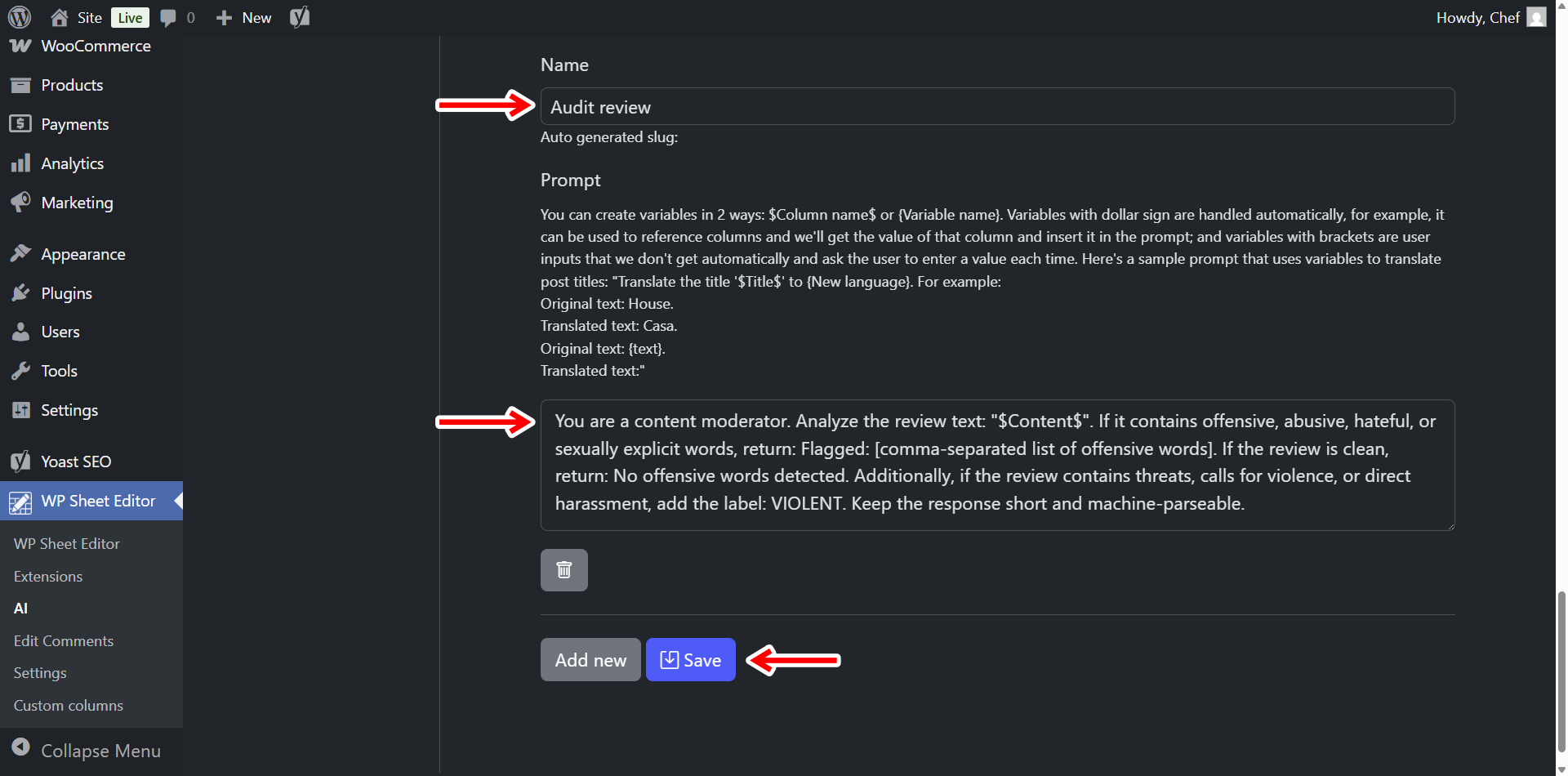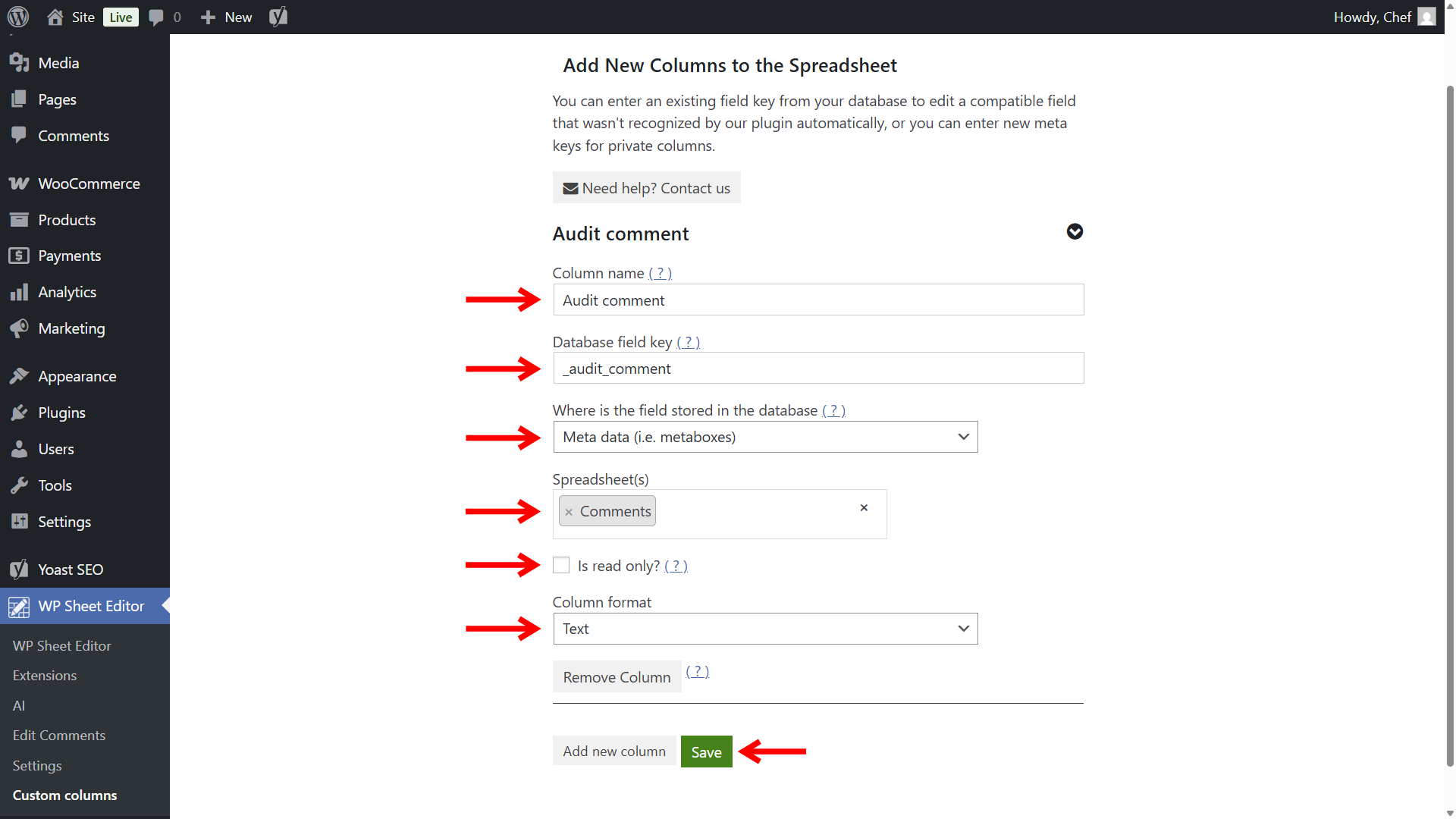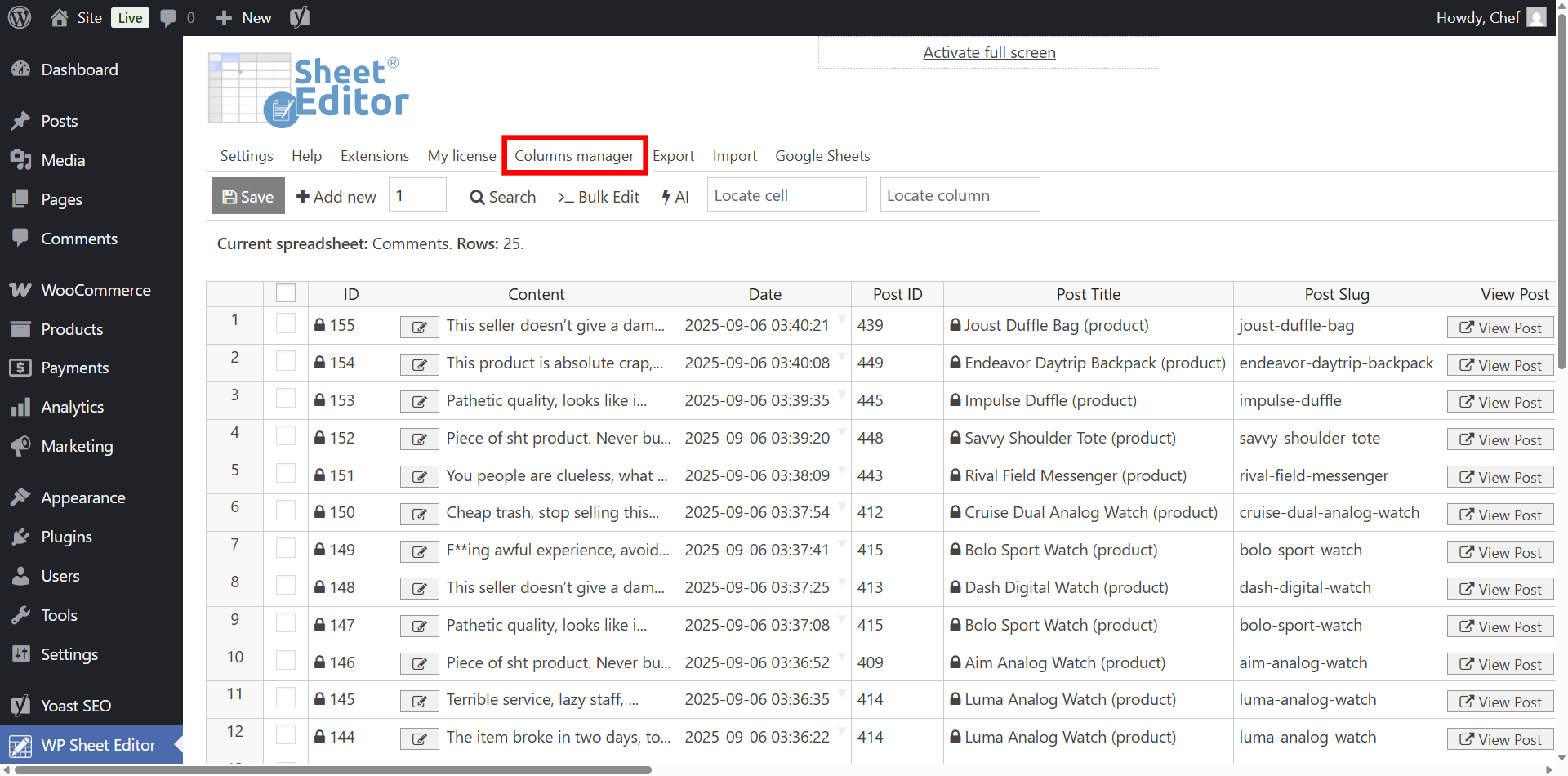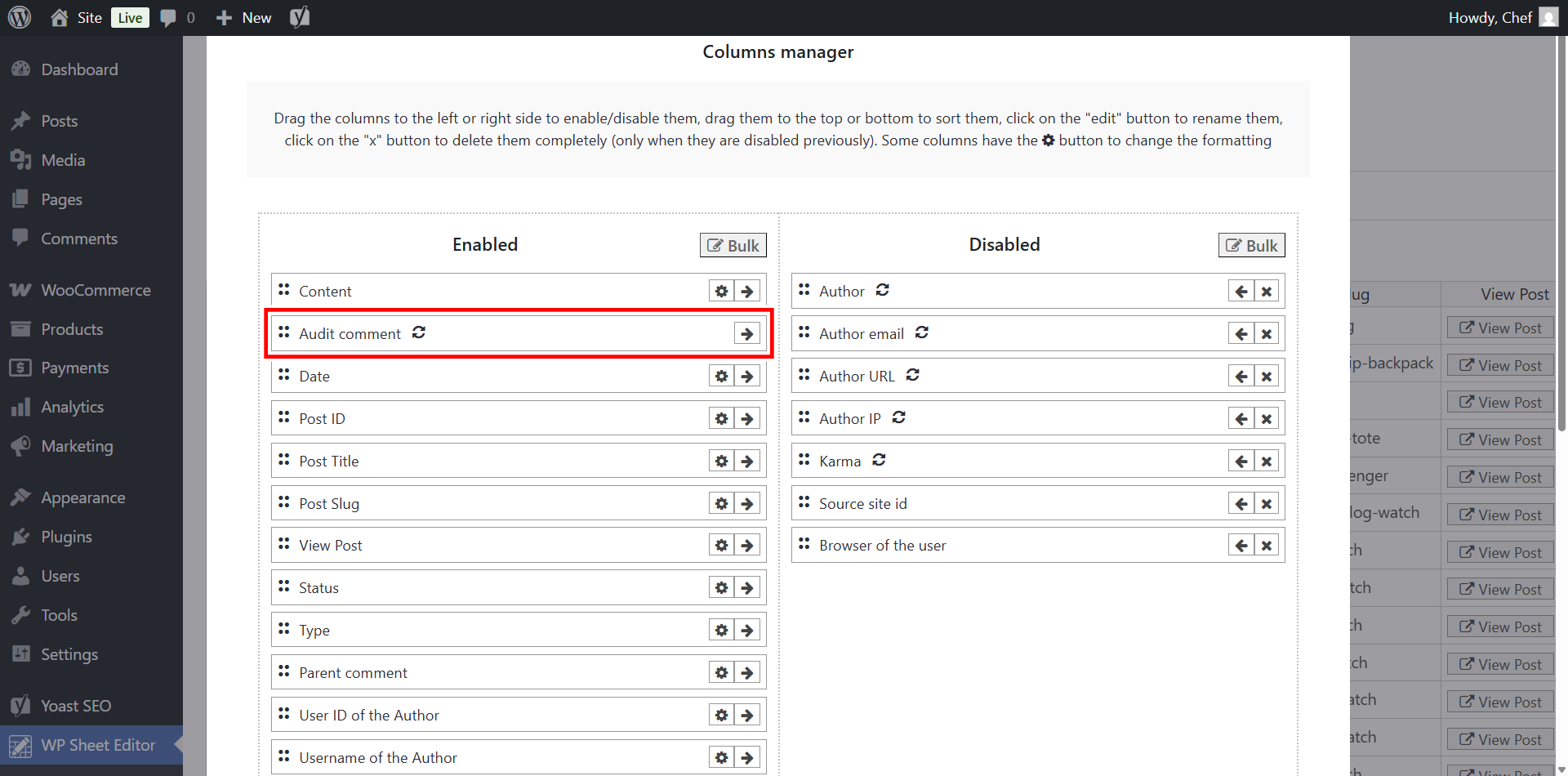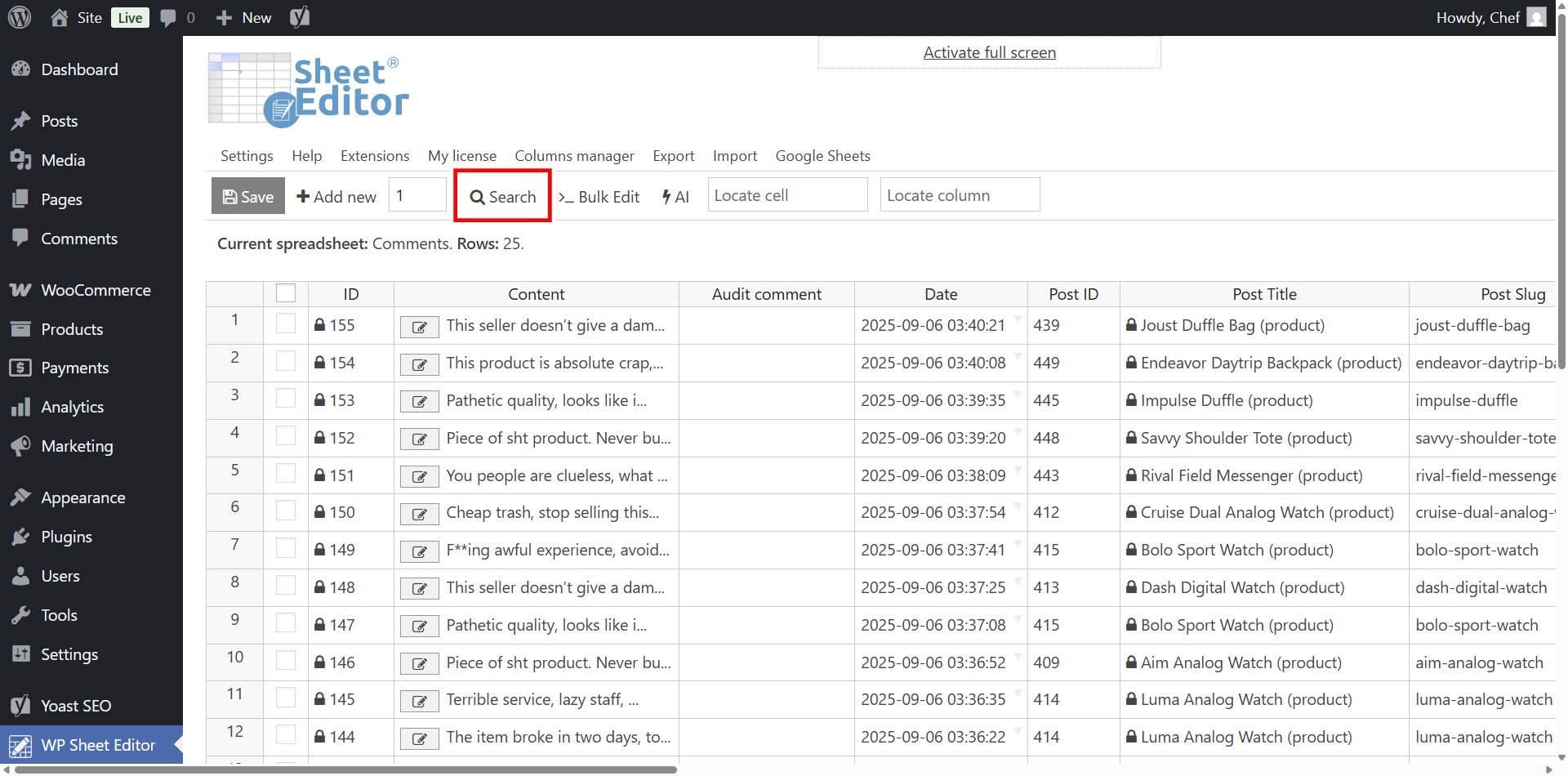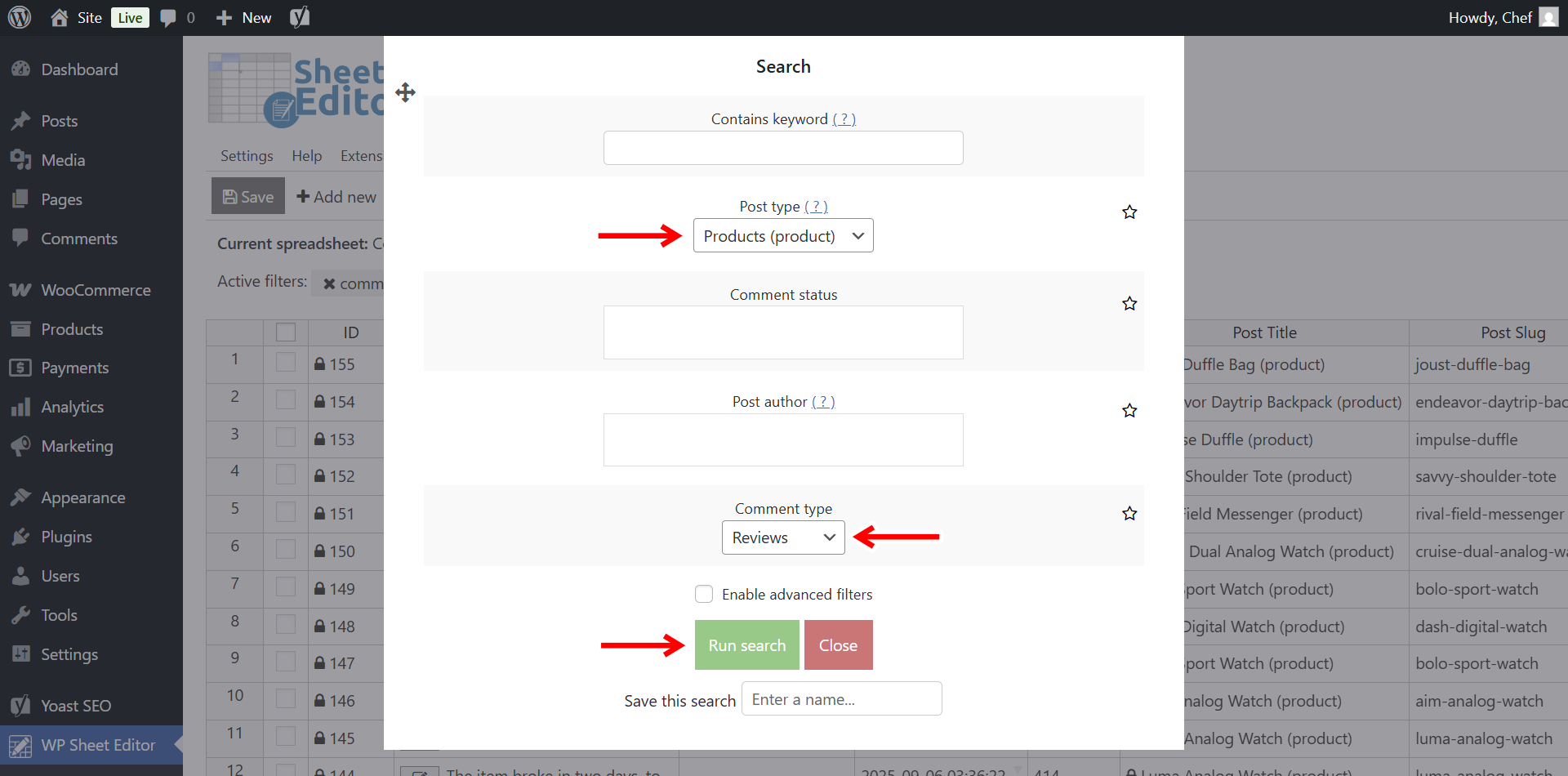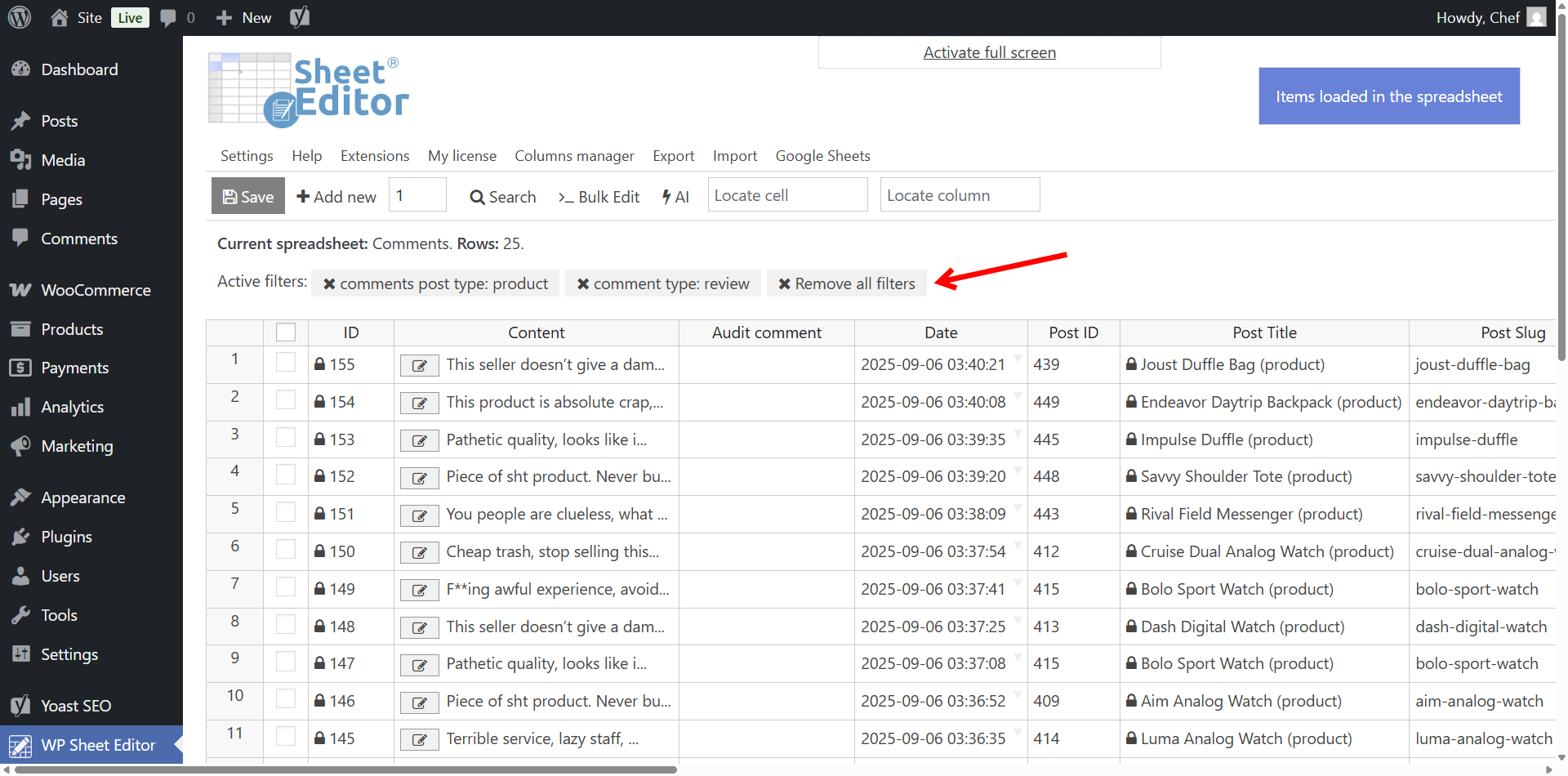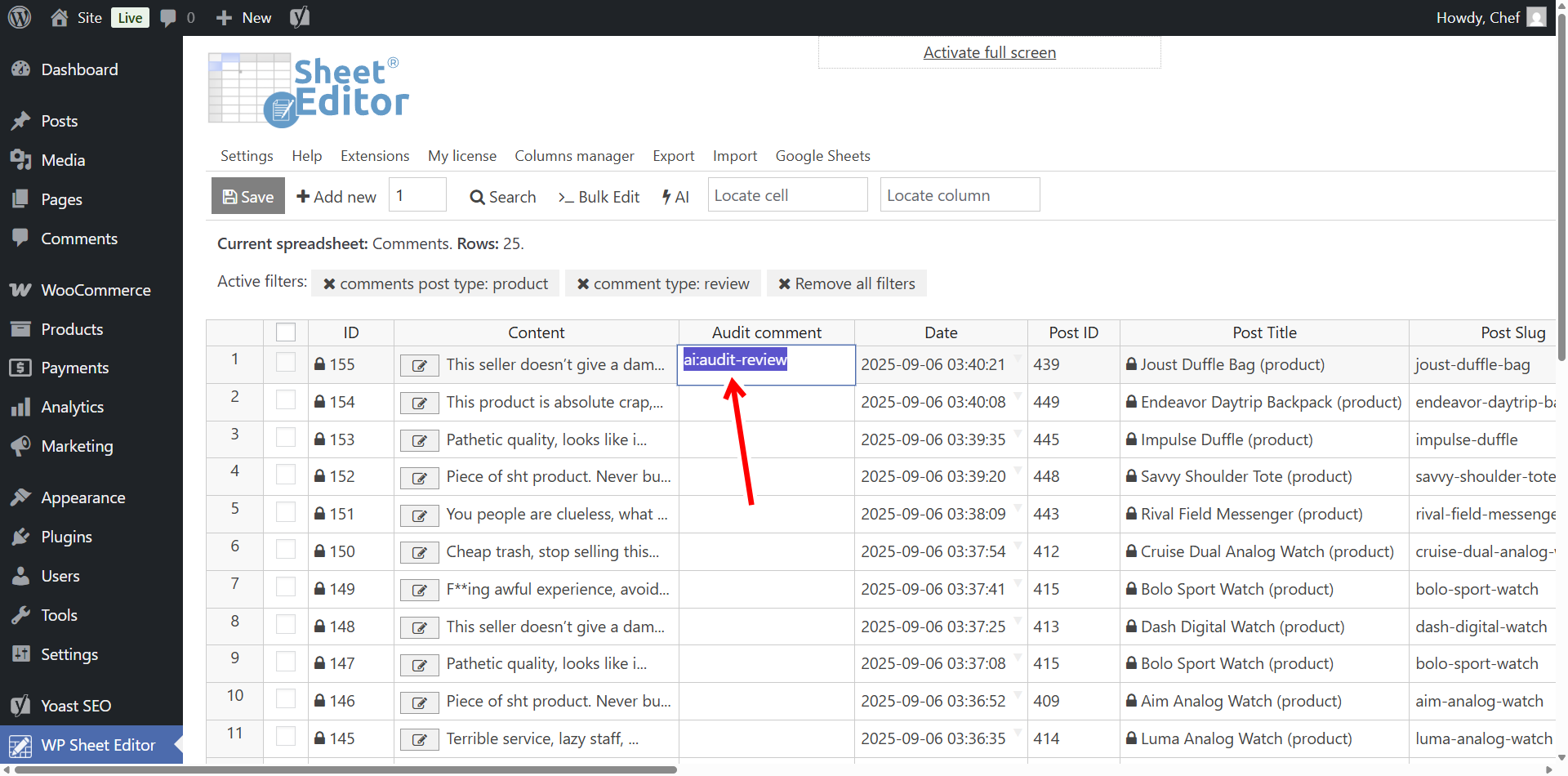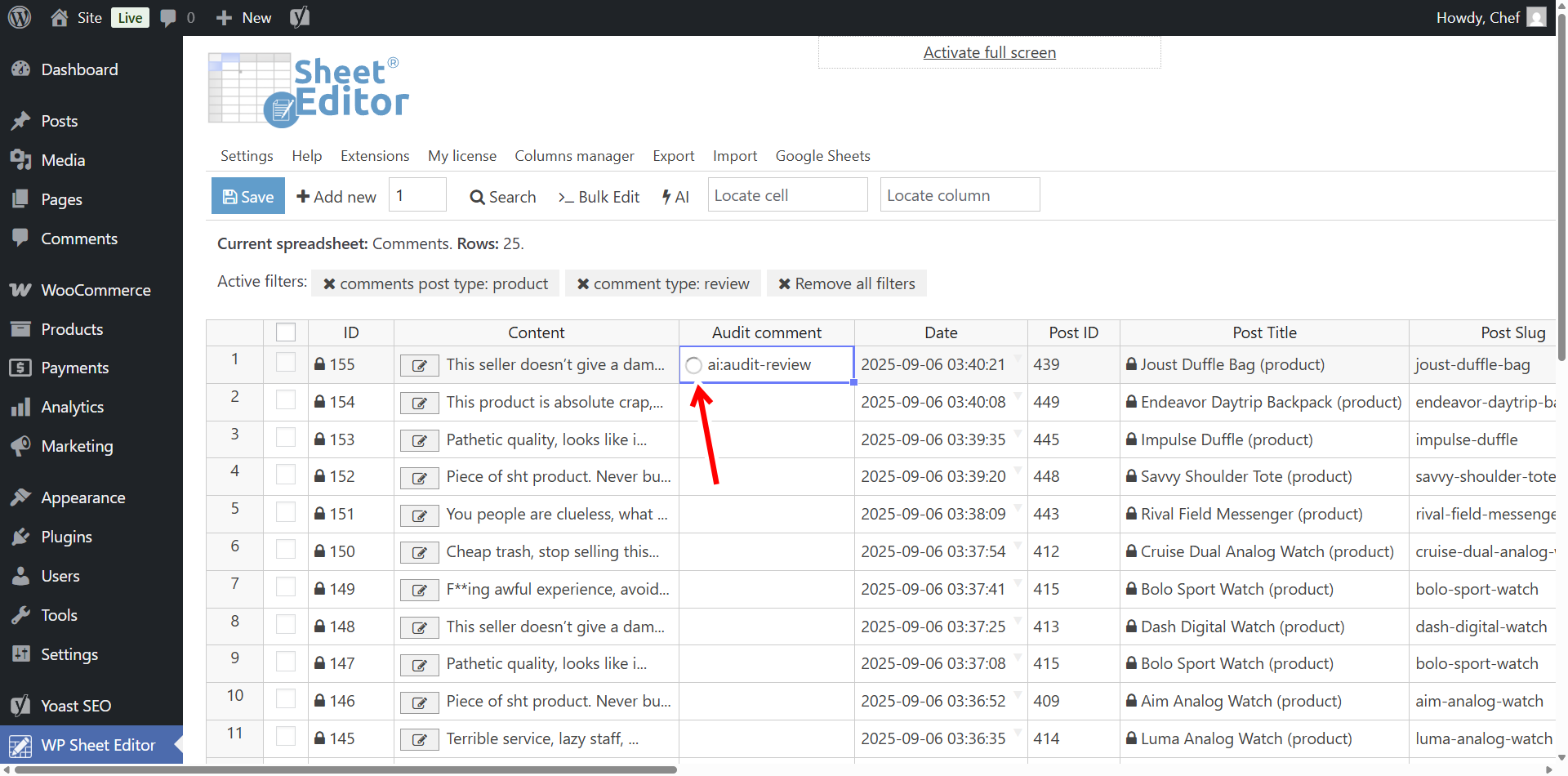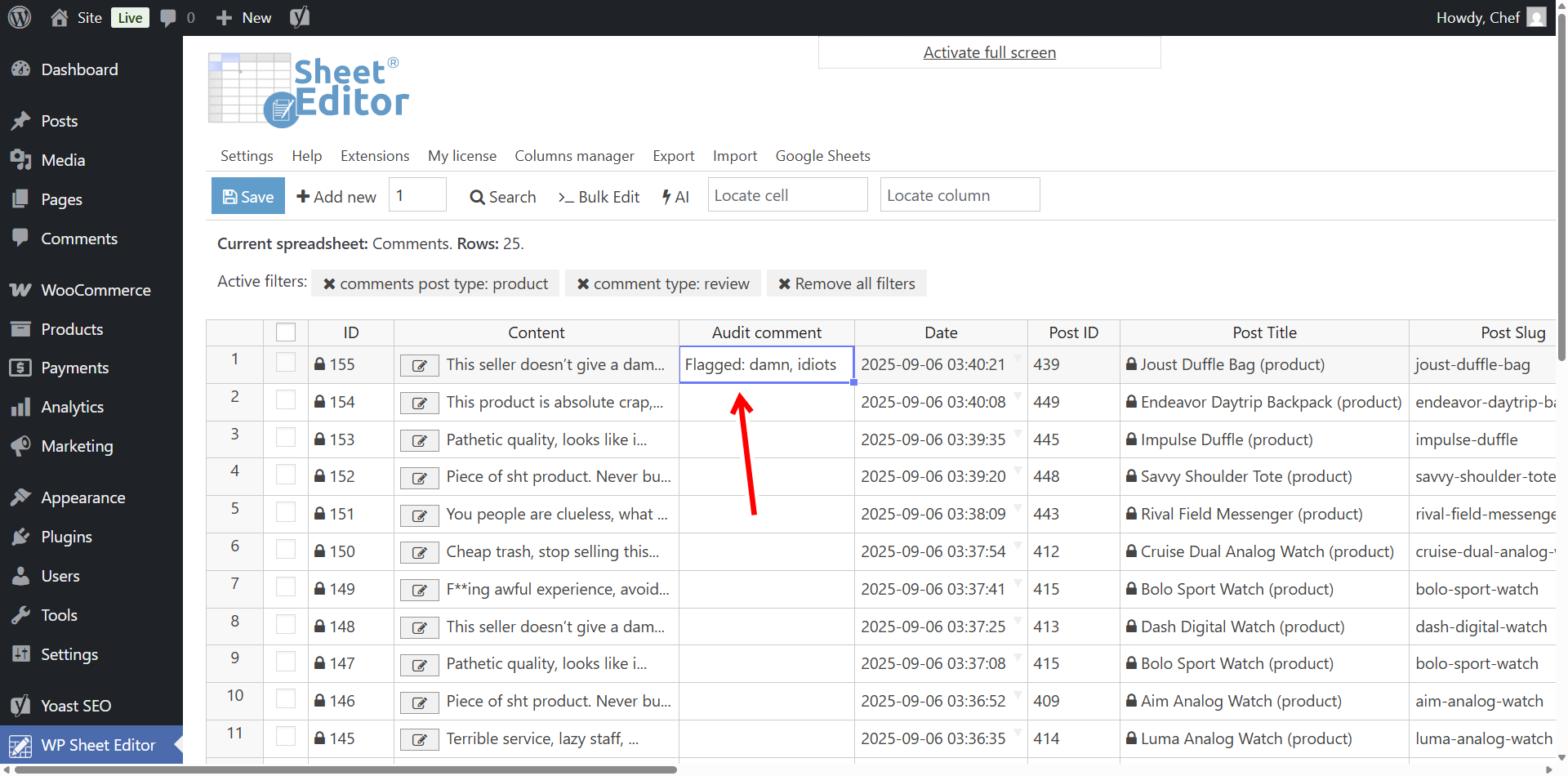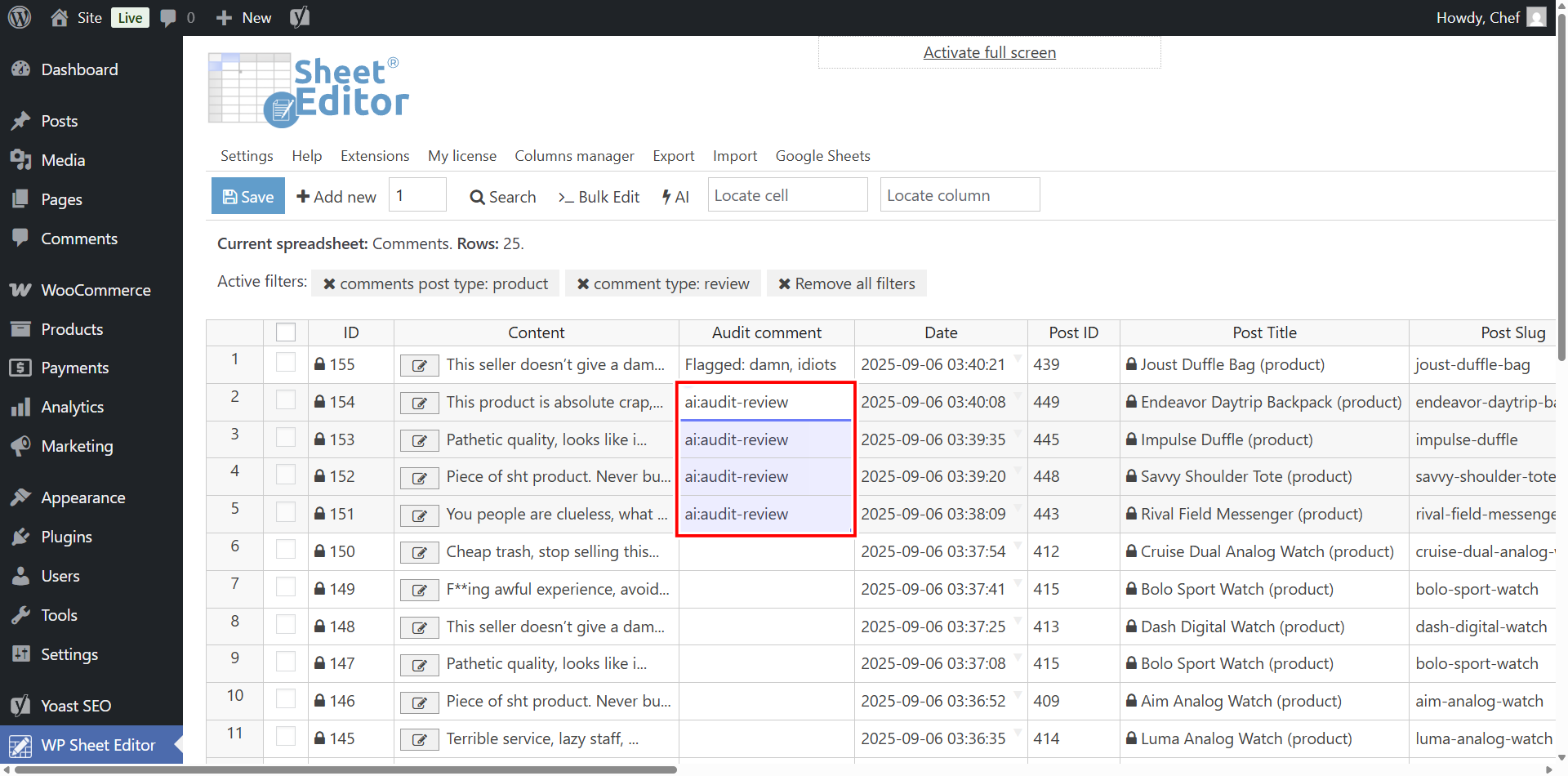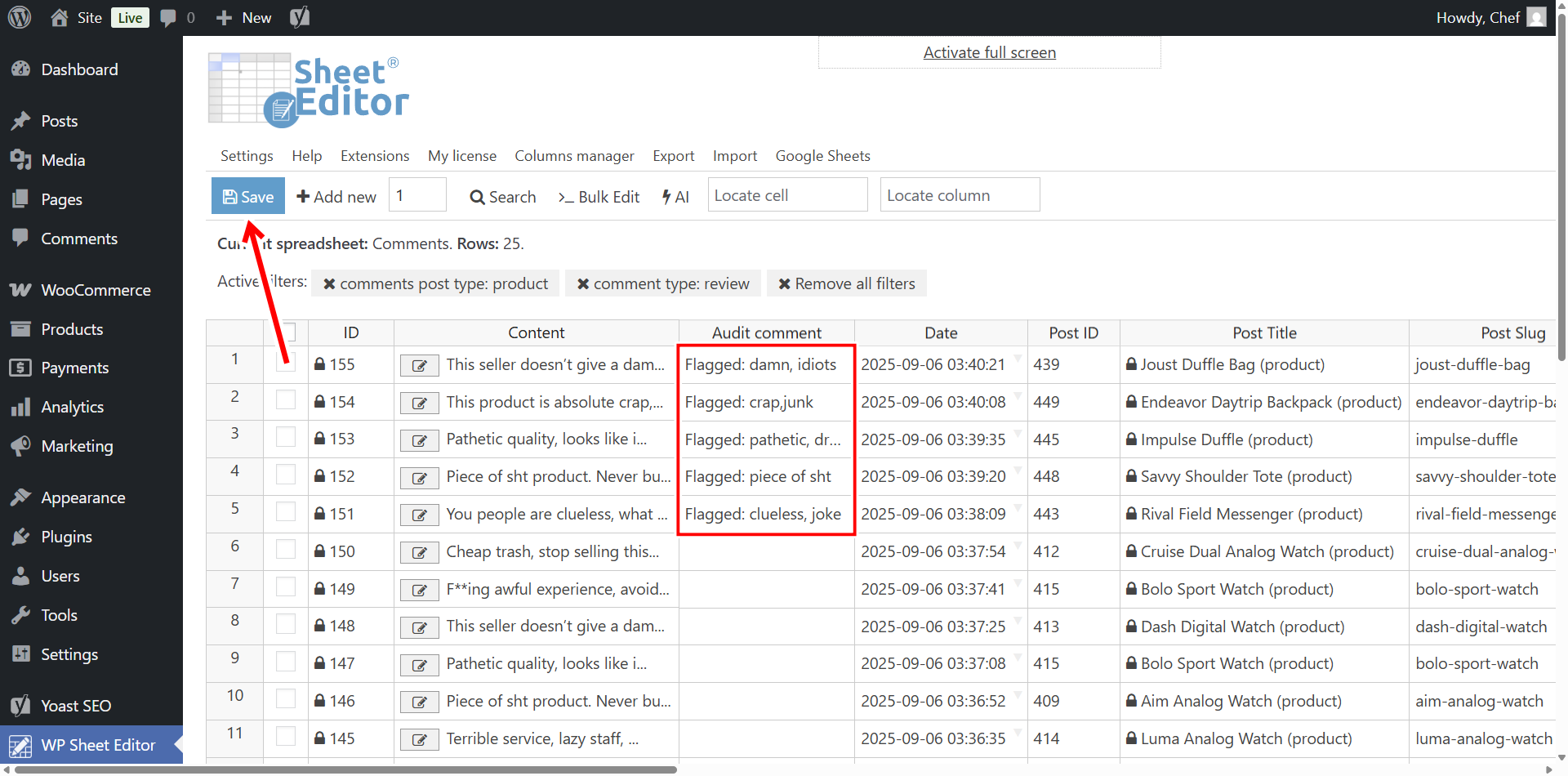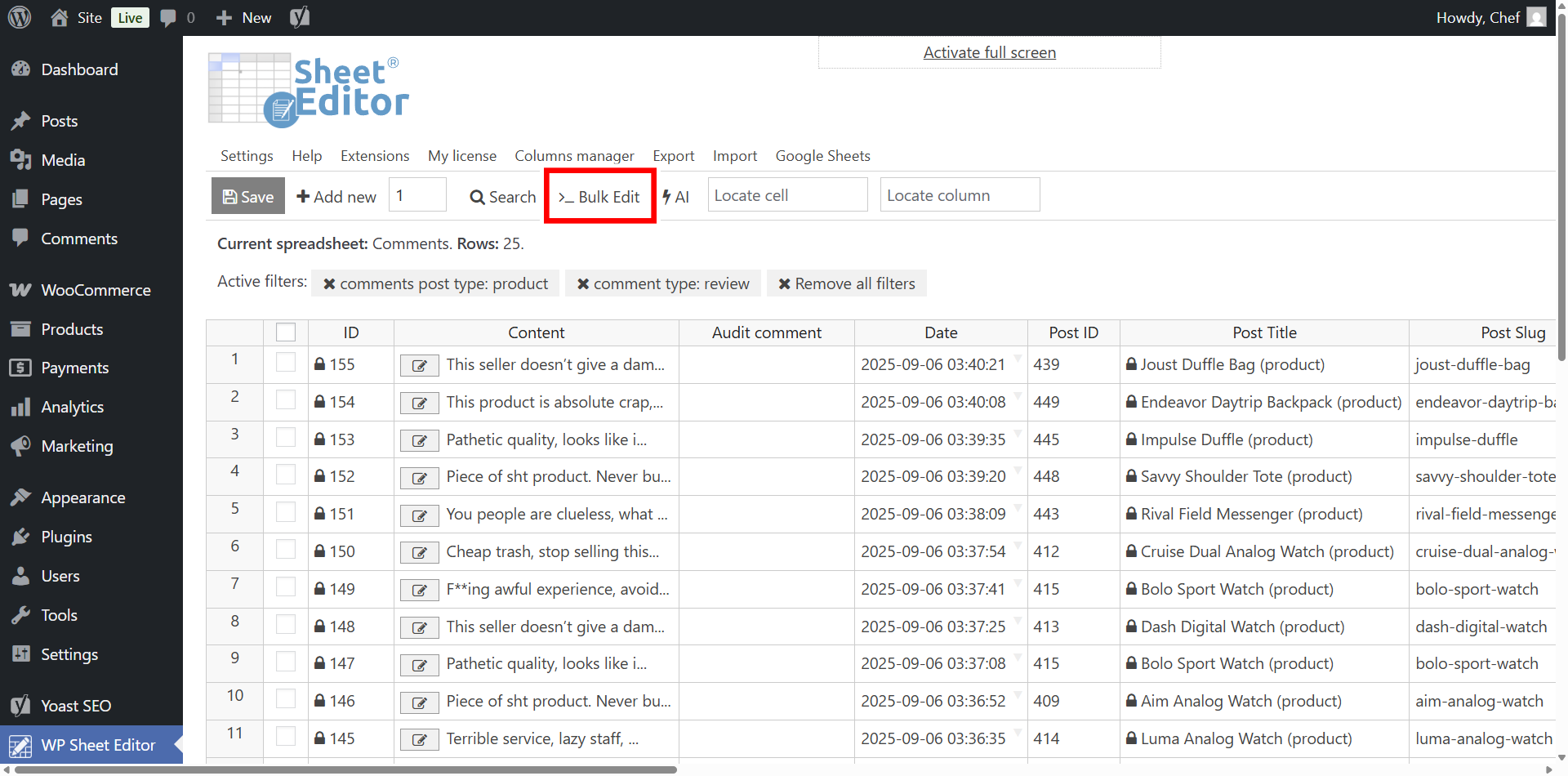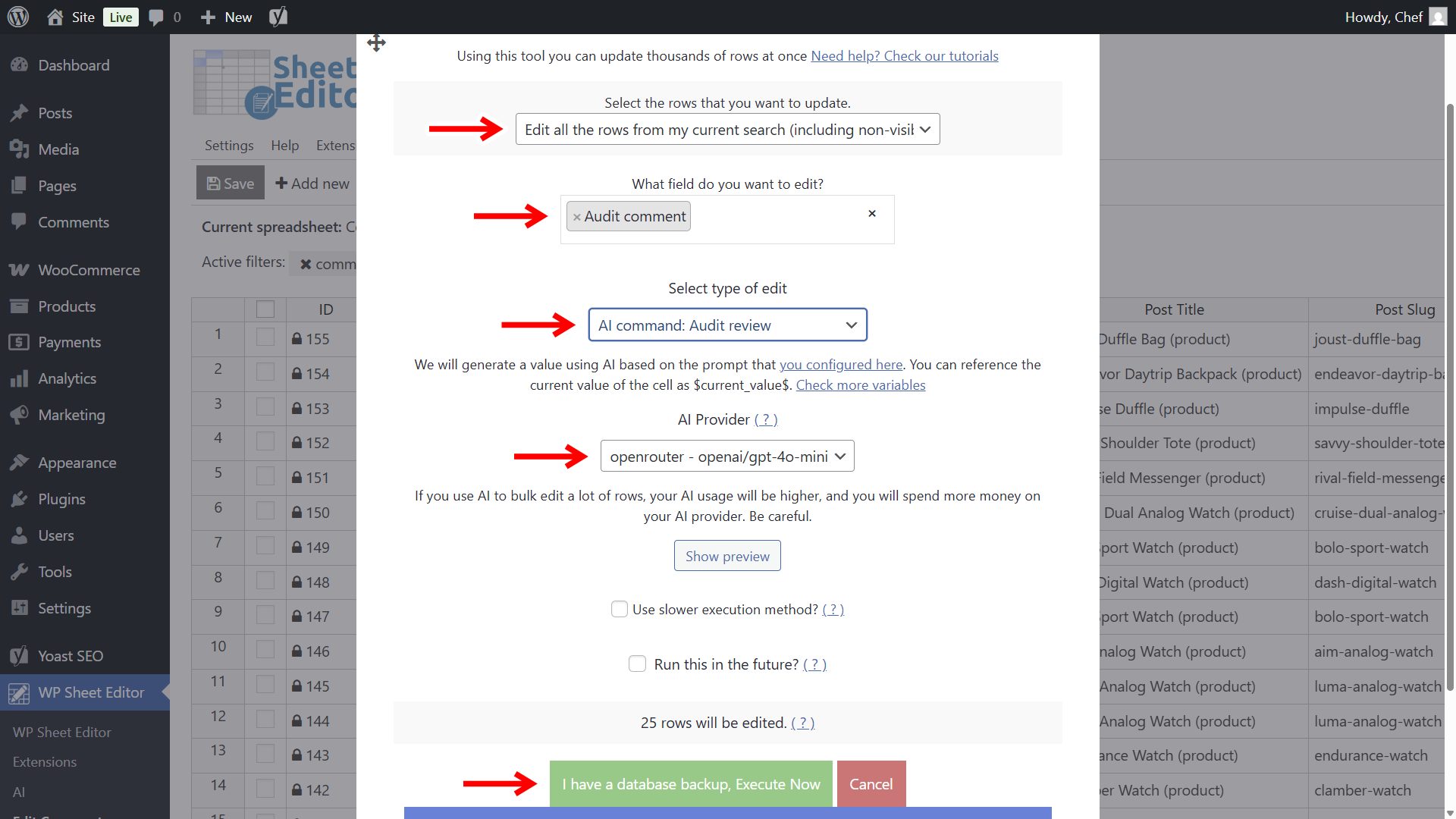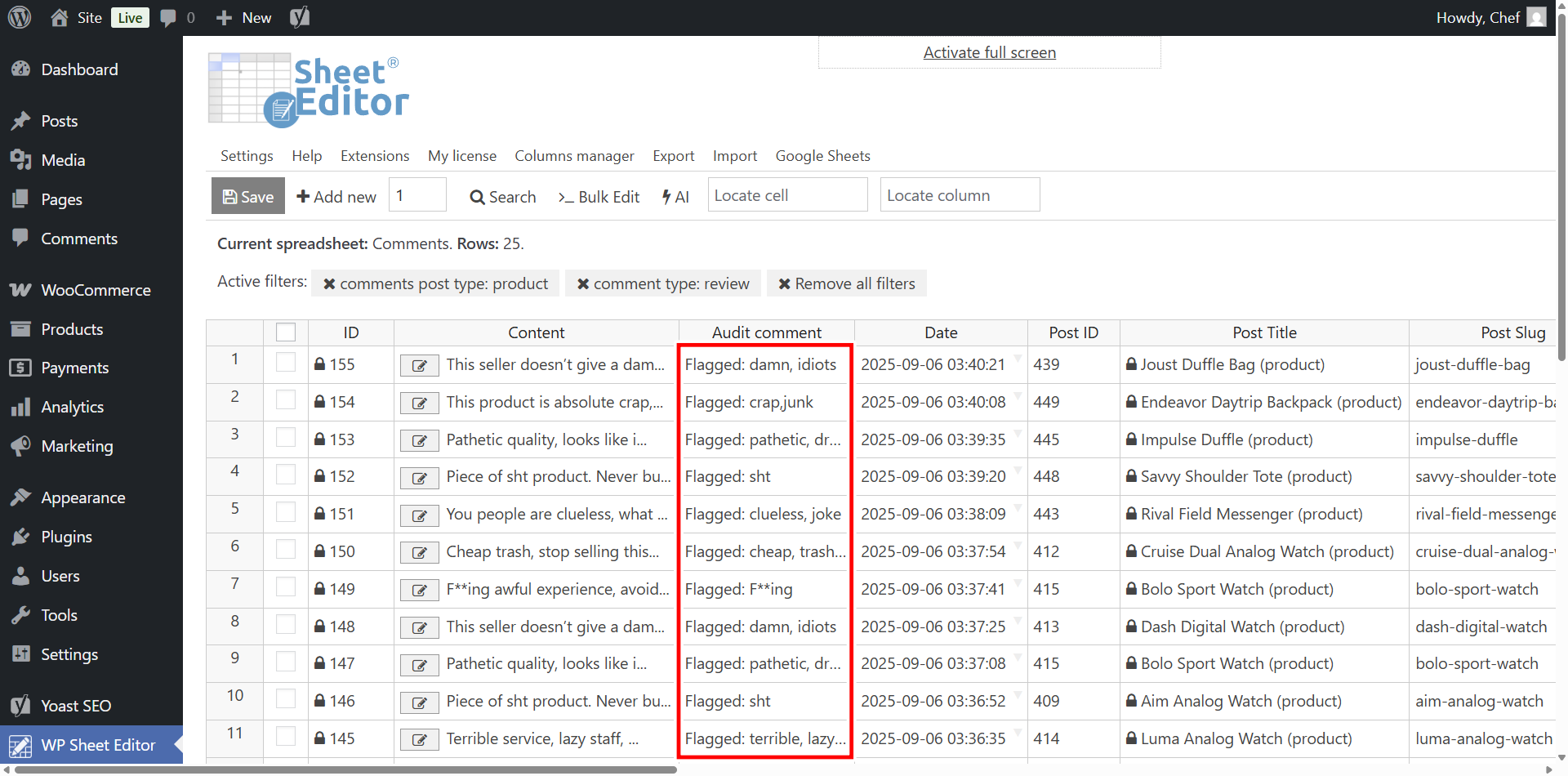Do you want to automatically detect profanity or offensive language in your WooCommerce product reviews? Keeping your reviews section clean is essential for trust. A single toxic or offensive comment can discourage potential buyers, hurt your brand, and lower conversions.
Manually reading and moderating every review is tedious, especially if you manage dozens or hundreds of products. The good news is that with WP Sheet Editor – Comments and Reviews and WP Sheet Editor – AI, you can audit your reviews automatically. The AI will scan reviews, highlight offensive language, and show you the results directly in a spreadsheet inside WordPress.
In this guide, we’ll show you step by step how to create a reusable moderation prompt, run it on reviews, and filter offensive content in bulk.
Table of Contents
What you need to audit WooCommerce reviews with AI
Here’s what you need to evaluate your WooCommerce product reviews with generative AI:
1- WP Sheet Editor – Comments and Reviews
This plugin gives you a powerful spreadsheet view of all WordPress comments and WooCommerce product reviews. You can edit, filter, or moderate hundreds of reviews at once without opening them one by one.
You can download the plugin here:
Download Polylang – Use AI to Bulk Translate WooCommerce Products Plugin - or - Check the features
2- WP Sheet Editor – AI
WP Sheet Editor – AI connects your WordPress site with AI providers like OpenAI, OpenRouter, and others using the OpenAI API format. With it, you can run AI commands directly in the spreadsheet, in individual cells, or in bulk edits.
You can sign up here:
Sign up to the WP Sheet Editor - AI Service - or - Check the features
3- External AI provider
The AI functionality requires an external API provider like OpenAI, OpenRouter, or another compatible platform.
You’ll need an account and an API key.
- OpenAI – Official provider for GPT models (learn more).
- OpenRouter – Access to multiple models including GPT-4o-mini (learn more).
- Any other AI provider with an OpenAI-compatible API.
If you haven’t set up your provider yet, follow this setup guide.
Step 1. Create a global prompt for auditing reviews
The first step is to create a global prompt: reusable instructions that tell the AI how to scan review text. Instead of pasting the full text each time, you’ll just use a shortcut.
Go to WP Sheet Editor › AI › Settings › Prompts, and click on Add new.
Enter a name such as Audit review and paste the following instructions in the prompt field:
You are a content moderator. Analyze the review text: "$Content$". If it contains offensive, abusive, hateful, or sexually explicit words, return: Flagged: [comma-separated list of offensive words]. If the review is clean, return: Clean. Additionally, if the review contains threats, calls for violence, or direct harassment, add the label: VIOLENT. Keep the response short and machine-parseable.
After saving, WP Sheet Editor generates a slug for the prompt, which you’ll use inside the spreadsheet. In this example, the slug is audit-review.
Step 2. Create a column for AI results
We don’t want to overwrite the review text. Instead, we’ll create a new column to display the AI’s findings.
Go to the toolbar and click Columns › Create new column.
Now select these values:
- Column name: Audit comment
- Database field key: _audit_comment
- Where is the field stored in the database: Meta data
- Spreadsheet: Comments
- Is read only: No
- Column format: Text
- Click on Save.
Then, open the spreadsheet by going to WP Sheet Editor > Edit comments and open the Columns Manager.
Make sure the Audit comment column is visible along with the Content column (where the actual comment text is stored).
Step 3. Search for WooCommerce reviews
By default, the spreadsheet might show all comments on your site, including blog comments. Let’s filter only WooCommerce product reviews.
Open the Search tool from the toolbar.
Now set the following filters:
- Post type: Products
- Comment type: Reviews
- Click Run search.
The spreadsheet now shows only product reviews. Notice the active filters displayed above the spreadsheet.
Step 4. Run the AI audit in the spreadsheet
Now it’s time to let the AI detect offensive words in the reviews. Go to the Audit comment column and type the prompt shortcut:
ai:audit-review
Once you press Enter, you’ll see a loading icon as the AI processes the text.
When it’s done, the result will appear in the cell. For example, it might show the offensive words detected or confirm that the review is clean.
You can paste the ai:audit-review shortcut into multiple cells at once to audit several reviews in one go.
After checking, don’t forget to Save your changes.
Step 5. Bulk audit reviews with AI
If you want to audit dozens or hundreds of reviews at once, our Bulk AI API is your best helper!
Open the Bulk Edit tool from the toolbar.
Now set these options:
- Select the rows that you want to update: Edit all rows from my current search
- What field do you want to edit: Audit comment
- AI Provider: Select your provider and model.
- Select type of edit: AI Command › Audit review
- Click Execute Now.
The AI will process all reviews at once and populate the Audit comment column with the results.
Frequently Asked Questions
Will the AI delete or block offensive reviews automatically?
No. The AI only flags reviews with offensive words. You decide whether to edit, unapprove, or delete them.
Can I customize what the AI looks for?
Yes. You can modify the global prompt to detect specific words, filter spam, or even analyze sentiment (negative/positive tone).
Do I need to pay for AI tokens separately?
Yes. WP Sheet Editor – AI connects your site with AI providers, but the text generation itself is billed by the provider (like OpenRouter or OpenAI). Each audit uses tokens, so check your provider dashboard for costs.
Conclusion
With WP Sheet Editor – Comments and Reviews and WP Sheet Editor – AI, you can automatically detect profanity and offensive words in WooCommerce reviews without manually reading every single one. This saves hours of work, improves moderation, and keeps your store trustworthy and professional.

